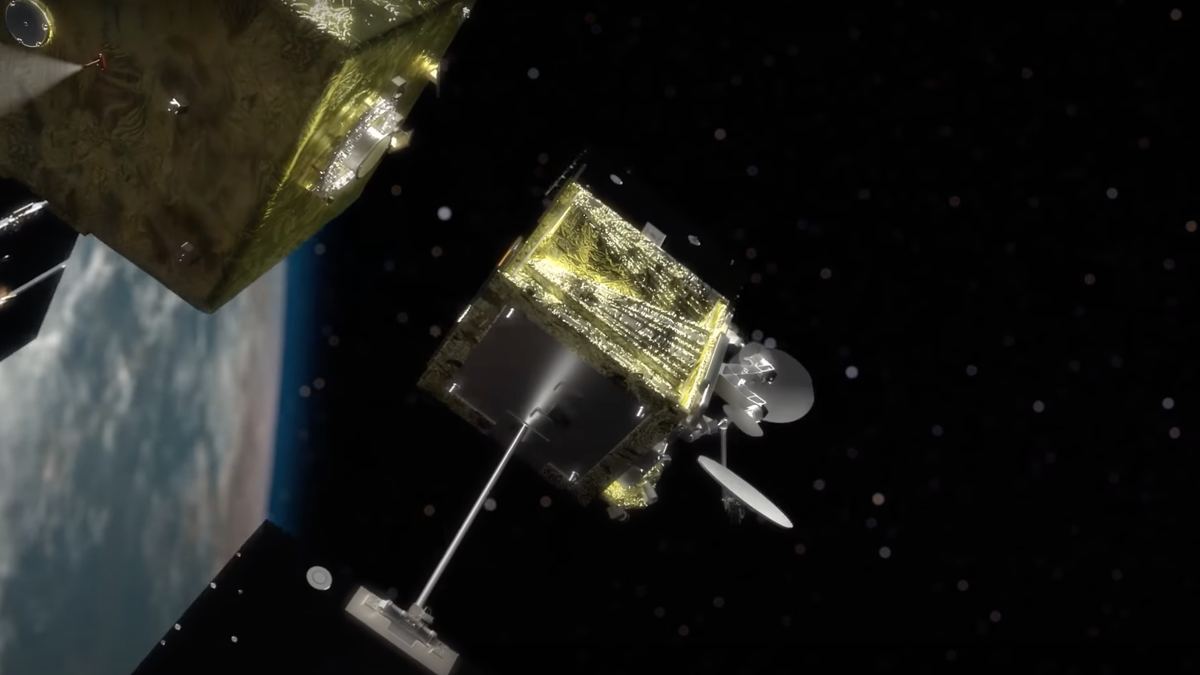- cross-posted to:
- geospatial@mander.xyz
- cross-posted to:
- geospatial@mander.xyz
This mission, ELSA-M, is a follow-up on the proof of concept ELSA-D mission that was launched in 2021 and successfully rendezvoused with a client’s satellite.
A challenge to this company going forward I see is that their interceptor requires a proprietary plate of their design to already have been affixed to the target satellite. I just don’t see how this gets wide adoption enough to help meet their lofty preventing Kessler syndrome rhetoric.

I could see this possibly working if the attachment plate was a very simple design/standard that they put into the public domain. I can’t see that hurting their profits since I can’t imagine there’s much competition in this market, but it’s the only way to get a significant number of satelites to be compatible with their system

I wonder why they didn’t use the normal grapple fixture?
As far as competition goes, Starfish Space has said that their “Nautilus” capture mechanism can grab surfaces that weren’t designed for docking. I think their goal is to extend the life of satellites, but if they’re better at capture and there ends up being a market or bounty system for dorbiting, then it would be cool to see them go for it.

